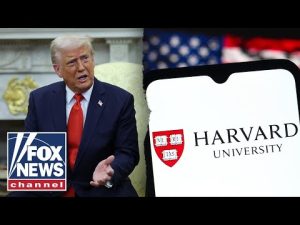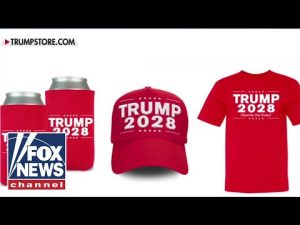In the realm of global diplomacy, the spotlight once again shines on NATO, as America’s most seasoned leaders remind Europe of its responsibilities. It seems there’s a lingering expectation for Europe to finally step up the game and open its wallet wider for defense spending. For years, the United States has carried the heavy burden of keeping NATO’s ship afloat, while some European allies have been basking in the sun on the beach of minimal defense investment. Now, the call is louder than ever for these allies to dig deeper into their coffers.
The NATO Secretary-General’s recent visit to the White House underscores a clear message: Europe must gear up, quite literally. In a world where threats from Russia loom large and China’s ambitions continue to expand in the Indo-Pacific, the U.S. needs its allies to share the heavy lifting. The U.S. hasn’t just been shouldering the financial load but also ensuring its positioning in other critical regions, which further underlines the urgency for Europe to show it’s serious about regional security.
Adding to the mix is the ongoing drama between Ukraine and Russia. Behind the scenes, there’s an effort to broker a peace deal with President Trump playing a key role in this diplomatic dance. It appears the script includes U.S. Special Envoy Steve Witkoff having crucial talks in Moscow with the ever-elusive Vladimir Putin. One can’t help but wonder if this will be yet another episode of “As the World Turns,” or if a bit of peace might actually be on the horizon.
As NATO members prepare for an upcoming summit in The Hague, the stakes are higher than ever. The expectation is that Europe will not only align with its 2% GDP defense spending but actually fulfill this commitment with impactful investments. The aim is clear: bolster military readiness and shed unnecessary expenditures that contribute little to the actual defense. In the midst of all this, Trump’s America First agenda continues to echo, demanding not just defense cooperation but also fair and beneficial trading terms with Europe.
With bold claims of economic savings from tariffs under Trump’s belt, the game plan seems strategic—get those barriers down and unleash American enterprise across global markets. Trump, the seasoned dealmaker, is keen on closing deals that lean favorably for the U.S., prioritizing those ready to open trade doors wider. The anticipation builds as eyes turn to the upcoming historic declaration, where President Trump’s leadership will, hopefully, ink lasting commitments that benefit not just the U.S., but the entire alliance. The world watches, wondering if Europe can rise to meet the challenges head-on, or if the U.S. will continue to play the role of both policeman and financier on the global stage.







